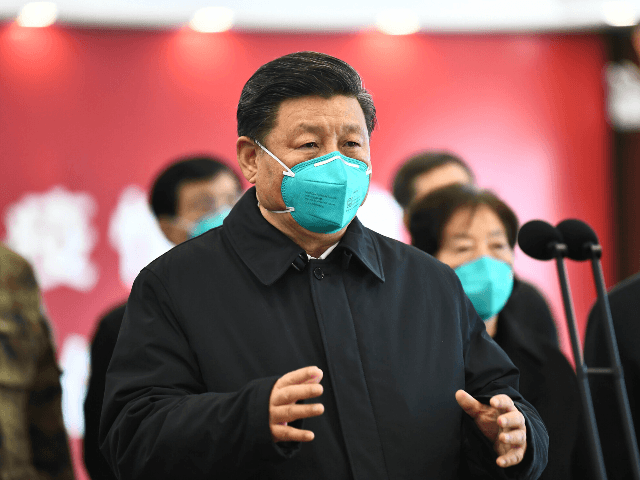A study published last week by the University of Southampton’s WorldPop population mapping group suggested that China could have prevented 95 percent of the coronavirus infections running wild across the world if the government had listened to the whistleblowing doctors of Wuhan instead of silencing and punishing them for daring to speak out.
The study, titled, “Effects of Non-Pharmaceutical Interventions for Containing the COVID-19 Outbreak in China,” reviewed the effects of quarantines, lockdowns, travel restrictions, and the techniques the world has come to know as “social distancing” over the past few months. The analysis concluded that identifying cases of infection and quickly implementing restrictions on human contact dramatically slows the spread of diseases such as the Wuhan coronavirus.
The study made it clear that timing is crucial, which prompted the Hong Kong Free Press to observe that China’s politically-motivated delay in admitting the coronavirus existed and was passing between humans is probably responsible for hundreds of thousands of preventable infections worldwide:
The simulations drew on human movement and illness data to model how combined interventions might affect the spread of Covid-19.
Coronavirus cases could have been reduced by 66 per cent if the measures were taken a week earlier, the study suggested, or by 86 per cent if action began two weeks earlier. If action was taken three weeks later, then the situation could have worsened 18-fold.
Most efforts to tackle the outbreak took place in late January, weeks after Wuhan ophthalmologist Dr Li Wenliang tried to warn about the mystery disease on December 30. He was among eight people who were punished by police on January 1 for spreading “rumors” about the virus.
The Public Security Bureau made Li sign a letter stating that he had made “false comments” and had “severely disturbed the social order.” He died last month of the disease, aged 34, prompting widespread outrage in China.
According to the New York Times, China also ignored offers of help in January from the US Centers for Disease Control and Prevention and the World Health Organization.
The report authors credited China for eventually implementing a “vigorous, multifaceted response” that prevented an even worse pandemic, with a total number of infections as high as seven million. Working backwards, the same models suggested 66 percent to 95 percent reductions of cases if China had taken those steps one to three weeks sooner.
Italy stood out in the study as the most grievous example of caseloads exploding in the absence of swift detection and isolation, as it took only two weeks for the number of Italian cases to increase a hundredfold.
Italy also has an aging population due to declining birth rates, coupled with an unusually high level of close physical interaction between older and younger generations, an environment that puts some analysts uncomfortably in mind of retiree-heavy areas in the United States such as Florida.
A CNN article on Monday contrasted Italy, one of the nations hit worst by the coronavirus, with South Korea, which was able to bring its outbreak under control with impressive speed.
In addition to South Korea’s rapid deployment of additional testing resources, an interesting demographic difference could account for South Korea’s better fortunes with the virus: it appears to be more dangerous to men than women, and much more lethal to smokers versus non-smokers, and South Korea has a remarkably small population of women who smoke. South Korea also seemed able to protect elderly people from exposure to the virus, while in Italy the disease spread aggressively among older people, in part because there is so much close intergenerational contact there.

COMMENTS
Please let us know if you're having issues with commenting.